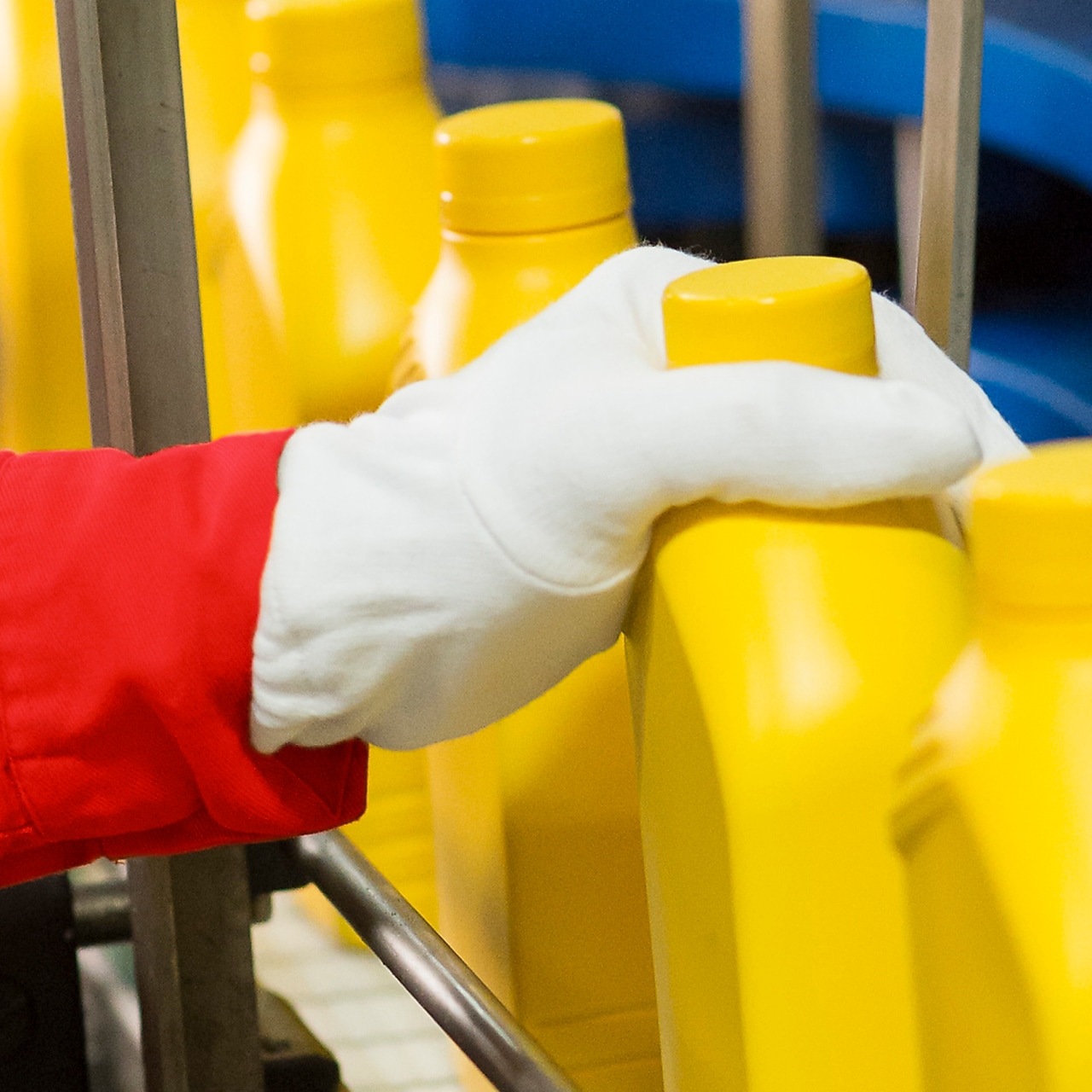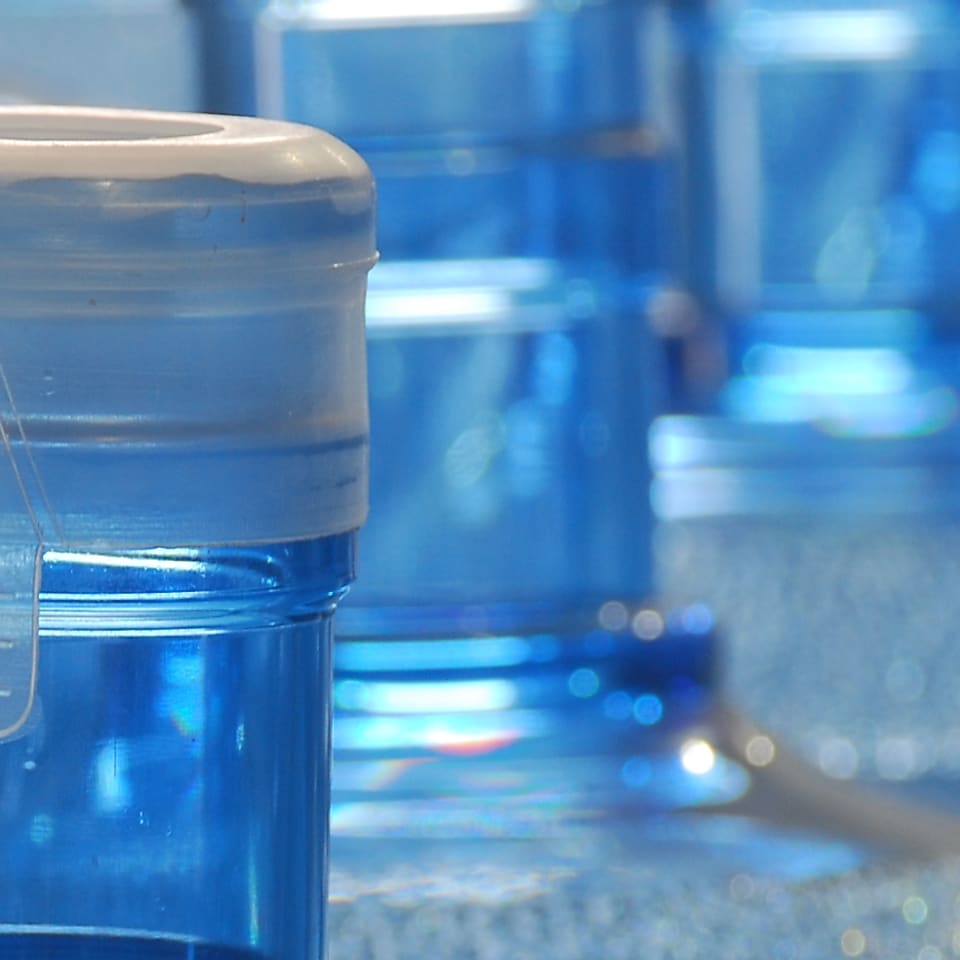
High-Quality Resin Can Increase Blow Molding Machine Production
While high-density polyethylene (HDPE) is a popular resin in blow molding applications, the resin’s quality can have a large impact on a converter’s production success.
The Right Resin for the Job
HDPE is the most commonly used resin in extrusion blow molding; but, in order for a converter to be successful it must source a high-quality resin. Improving production is always a top priority for converters, and while there are ways to optimize blow molding machine production that involve the machines itself, resin also plays an important role.
There are steps suppliers can take to make sure its resin is at the necessary quality level for a converter’s needs. Those measures include diligent quality control that achieves a high level of resin quality and on-site troubleshooting that addresses specific converter challenges.
How Quality and Consistency Lead to Increased Production
HDPE is valued for its rigidity, toughness, impact resistance, and protection against moisture and chemical corrosion. It’s a versatile material that is especially popular in extrusion blow molding applications.
However, low-quality or inconsistent resin batches can lead to those attributes being less predictable and beneficial. If batches have inconsistent melt indexes or densities, converters will need to adjust its process in order to ensure the end products meet their customers’ specifications. That’s why lot-to-lot consistency plays a major role in a supplier’s effectiveness. Resin consistency and quality are both equally important when it comes to maximizing machine production.
High-quality resin may sound like an ambiguous term that is difficult to define, but part of that moniker involves the removal of problematic particles. For example, dust and angel hair is a common defect and can have a negative impact on how blow molding machines operate.
Less Dust + Less Angel Hairs = Higher Productivity
Angel hairs and dust are both common issues that can slow down production for converters. Dust can cause sensory issues such as pellets bouncing and chipping off and angel hairs can create issues around how polyethylene runs through a blow molding machine. If converters run into these issues during production it’s often a reason to slow down or shut down blow molding machines as they must fix the issue to maintain high productivity.
Shell Polymers aims to provide the lowest-dust pellets to provide peace of mind that the pellets will run smoothly on converters’ machines. To do that, our teams will be checking resin pellets throughout their production lifecycle and analyzing them with in-depth processes. We’ll also use state-of-the-art equipment to reduce angel hairs in our resin pellets, limiting how they affect converters later on. These kinds of innovations and built-in workflows will help us provide converters with high-quality resin that does not impede their ability to produce products for customers.
How Converters Can Ensure Resin Quality
Speaking of resin, the quality of a polyethylene batch should always be the responsibility of the supplier. Converters can help themselves by finding a polymer supplier that is focused on resin quality at every stage of production. Inconsistent resin leads to inconsistent blow molded products. And producing products that aren’t consistent can cause unnecessary downtime and disrupt supply chains.
For example, inconsistencies in melt indexes can negatively impact extruder or material output on blow molding machines. This will result in inadequate weights, cycle timing out, and other production issues. To address these problems, processes will need to be optimized, which can take anywhere from minutes to hours, negatively impacting production either way.
Shell Polymers aims to reduce inconsistencies in resin batches by leveraging online pellet analyzers that test resin in real time. These analyzers check pellets in real time so that our team can make adjustments to resin batches as needed. This way, we can adjust quicker than traditional analysis methods that can take hours, if not days, longer while still ensuring high-quality resin for blow molding machines.
Work Alongside Blow Molding Experts
With the potential issues that can arise in blow molding, it’s best to work with a team of polymers experts that knows your business and your challenges. The benefits of working with Shell Polymers go beyond resin quality as our expertise provides additional benefits to customers.
For example, our Senior Technical Service Engineer in Blow Molding and Injection Molding, Francisco Alvarez has more than 25 years in the polymers industry with a strong background in polymer processing and specialist in resin design and testing.
He is the inventor and co-inventor for several patents related to thermoplastic compositions and has worked internationally to help converters (blow molding, injection molding, sheet extrusion-thermoforming, rotational molding) around the globe to improve their productivity and produce better quality parts.
Another blow molding expert on the team is Michael Misco, Technical Service Engineer, Blow Molding. He has more than 10 years of experience in the blow molding manufacturing industry; helping customers innovate in new product and application development as well as process and continuous improvement.
This level of expertise gets fed directly to our customers as our blow molding experts have documented how to avoid common causes of defective blow molded products. Those include routine maintenance, optimized heating and air control systems, appropriate size head tooling, and using recommended processing conditions.
When it comes to our customers, we believe we should go beyond the pellet and collaborate with converters for a more effective approach to optimizing blow molding machine production.

Discover the Business of Plastics
Download our comprehensive Business of Plastics industry report to stay on top of evolving converter trends.


